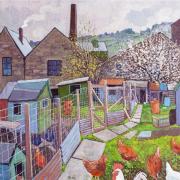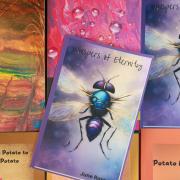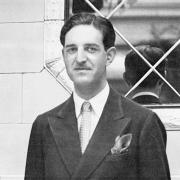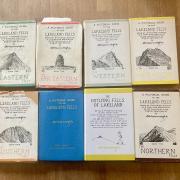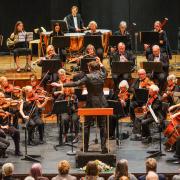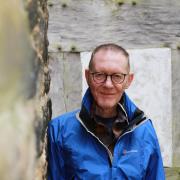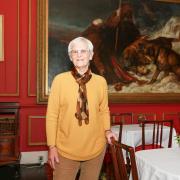One of the survivors of the Freckleton Air Disaster recalls the day 75 years ago this month when the village was devastated

On the morning of Wednesday August 23,1944, the Nazis were being pushed back through eastern Europe, Paris was on the verge of being liberated, and Freckleton was about to suffer a tragedy that resulted in the greatest single loss of civilian life outside of London during the Second World War.
The village was no stranger to the conflict, with military aircraft taking off and landing at the nearby USAAF Base at Warton. By 1944 more than 10,000 American servicemen were stationed at Base Air Depot 2 (BAD2) Warton, where USAAF aircraft were adapted, repaired and flown before being reintroduced into the life-or-death struggle with Nazi Germany.
At 10.30am a refurbished American B-24 Liberator Bomber took off from Warton, to conduct a series of routine tests.
At the controls of the bomber were Lt John Bloemendal and Tech/Sgt Jimmie Parr, with technical support provided by Flight Engineer Sgt Gordon Kinney.

All were experienced and highly respected airmen. A separate B-24, flown by 1st Lt Peter Manassero, was already in the air conducting similar tests.
Although none of the aircrew were yet aware of it, a massive storm was rapidly building and forcing its way north, towards the Fylde Coast. The storm was at its height as the two B-24s attempted to land at Warton and both pilots decided to abort their landings. Lt Manassero was able to fly out of the storm and safely landed his aircraft at Warton five minutes later.
The other B-24 had almost certainly been struck by lightning and was now completely out of control. It damaged several houses as it came down, before destroying the Sad Sack Cafe on Lytham Road.
Across the road from the café, 176 young children were in their morning lessons at Holy Trinity Primary School.

The B-24 bomber ploughed into the infant classroom and burst into flames. Only three children from the infant classroom survived.
Among the dead was five-year-old Dorothy Sudell. Her sister Nellie, eight, was just feet away in Miss Rawcliffe's classroom when the plane hit.
Now 83, Nellie still lives in Freckleton and remembers the day the village was changed for ever. 'I have never known a day before or since to go from daylight to total darkness in such a short space of time,' she said. 'It was like night, and all the classroom lights had been turned on. Some children were becoming distressed by the severity of the storm and I remember Miss Rawcliffe telling everyone to rest their heads on their desks and to close their eyes until the storm had passed.
'The thunder and lightning were the worst I've ever known, and even today, 75 years on, I can't bear the sound of thunder.

'I honestly can't say I remember the moment of impact. What I do recall very clearly is everyone in the classroom being pushed towards the door in an attempt to escape. I seem to remember that I was the first to reach the door and as I opened it, all I could see were flames and falling debris. There was glass everywhere and smoke made it very difficult to see beyond a few feet. I knew we had to get out, and we just kept heading away from the fire through the boy's cloakroom. I don't recall anyone being in control or directing us, but I suppose they must have.'
In the classroom next to Nellie's was a nine-year old boy, John Hankinson, who had an even more dramatic escape from the carnage as he dived to safety through a classroom window. Less than 12 years after the disaster, John and Nellie were married in the adjoining church.
'The next thing I was aware of was standing by the air raid shelters (now an extension of the village graveyard), behind the school. I can only assume someone had picked me up and thrown me over the school wall towards an area of safety. The first people I remember seeing were a handful of American servicemen.
'If I close my eyes, I can still see it all, although, strangely, I can't recall anyone speaking or shouting or any noise or smell relating to the fire or building collapse. I suppose I was in shock.'
Nellie is now a mother, grandmother, and great-grandmother several times over who was landlady of the Coach & Horses pub in the village centre for 25 years. 'I honestly don't want this to sound selfish because so many people were worse off than me, but in the days and weeks that followed the disaster nobody in the house thought about me as I sat alone in my bedroom.
'Catherine, my sister, was three years old, and wasn't at an age to comprehend what had happened. The day of the crash was her birthday and from that year onwards and for as long as she lived at home, her birthday was never celebrated by either of our parents. She recently told me that when she was a small girl she thought she'd done something very wrong for her birthday not to be celebrated in any way.'
On the day the funeral was held in the village churchyard, the schoolchildren who had survived, together with younger siblings, were invited down to Garlick's Farm on Freckleton Marsh. 'We had ice cream which was a real luxury at the time. Most of us never really knew the funeral was taking place as we sat enjoying our ice creams on the farm, but it is now hard to imagine that less than a mile away a very different gathering was taking place in the church graveyard.'
Nellie and her two surviving sisters, Catherine and Mary, still live in the village. 'I think one of the reasons we all became 'cemented' to Freckleton is as a result of the awful tragedy. My mother never really got over the death of Dorothy - who I suppose would be forever her little girl - and she died at the age of 61. Dad also died at the relatively young age of 69.
'Both were hard-working people who knew they had no option other than to carry-on with running the farm and bringing up their three daughters. But it was clear the events of 1944 had to have worn them down.
'I try not to think about it too much or too often, although the annual memorial service is something that I will be attending for I what hope will be many years to come.'






